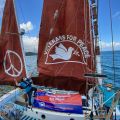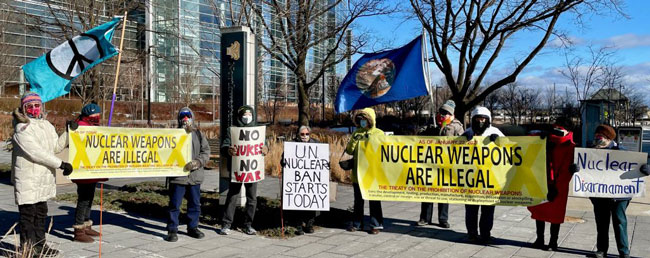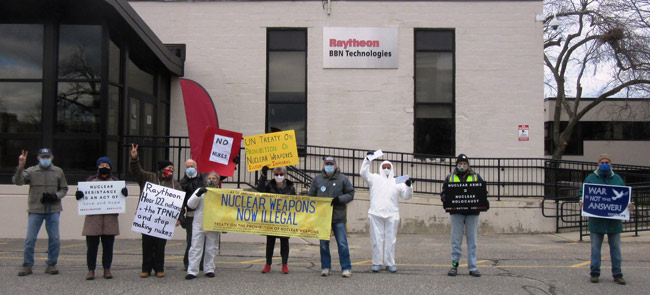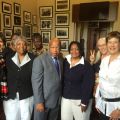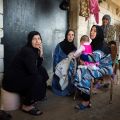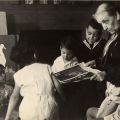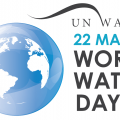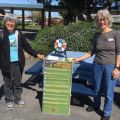By Darien De Lu
WILPF US President
March 2021
As you struggle with some unfamiliar computer program or app on your phone, breathe for a moment and remember: There is a good side to these electronics! Here at WILPF US we not only are creating more and more informative content, but we’re also making it easier and easier for you to find it. With this article, I’ll let you how to track down three important WILPF education and information sources: webinars, eNews articles, and eAlerts.
Webinars
In the last year, the pandemic has introduced far more of us to webinars. In record time, the all-volunteer members of our national issue committees have really stepped up to produce an impressive array of presentations, from the groundbreaking Disarm/End Wars Committee series of webinars on the many significant 75th anniversaries in 2020, to the on-the-ground Lebanon discussion from the Middle East Peace and Justice Action Committee, to the explorations of alternative economics presented by the Women, Money & Democracy Committee, with their collaboration partner, An Economy of Our Own.
You’ll find all of those and more in the ever-expanding online WILPF US video collection. We hope you’ll subscribe!
Other WILPF presentations are also there, as individual videos or grouped into "playlists." You can brush up on your Zoom skills or learn about Tik Tok in our social media trainings! Or check out some of the wide-ranging presentations produced by our many branches. And we have various other kinds of webinars; please do take a look!
If you’re especially interested in the Disarm webinars, you’ll find a list of and additional information about the 75th anniversary webinars through December 2020 on the DISARM/End Wars webpage.
eNews Articles
Seeing a webinar recording is good, but it’s usually even better if you can see the webinar live. Most webinars are announced in our monthly eNews, so if you keep up with the eNews, you’ll know about webinars in advance.
Are you already subscribed to the eNews? If you’re a WILPF US member, you’re automatically subscribed if you’ve given us your email address. If you did not do so initially, you can easily change that! Simply send your email address (with a request to get the eNews) to Info@wilpfus.org. If you’re not a WIPF member, you can still subscribe here.
If you’ve subscribed but you’re not getting the eNews in your email inbox: Because of the nature of the eNews content (containing images and links), the eNews is frequently labeled as spam (or "promotions" or similar areas) by various email "clients" (programs) and providers. Worse yet, such treatment of the eNews will vary from month to month. If your provider/client tells you how to put the sender’s address (Info@wilpfus.org ) on a "good" or "trusted" sender list, that might solve the problem. Otherwise, check through the several "spam-type" mail areas: spam, junk, promotions, solicitations, and others. If you should be receiving the eNews but just can’t find it, call our national office for assistance: 617-266-0999
But there’s also another way to see the eNews! When it comes out each month (except January), usually between the third and the seventh of the month, you can go to the WILPF US home page at https://wilpfus.org/ . There you’ll see five featured eNews stories, and you can also click on "See All News" (at the bottom of the News titles in the large green area of our homepage).
Additionally, you can also see past as well as current eNews editions in the eNews Archives. That link can be found in two places: In the dropdown menu under Resources from the top navigation bar, and further down on the homepage, under Resources in the brown area. If you’re looking for specific articles, check by month in the eNews Archives.
eAlerts
When you provide your email address or subscribe to the eNews, you also get the eAlerts. Our WILPF eAlerts relay important short-notice items, such as webinar announcements and Congressional lobbying opportunities; however, they sometimes suffer the same fate of "spam" labeling as our eNews.
But you needn’t give up! Like the eNews Archives, the eAlerts have an archive. Look for the eAlert and eAction Archives in that same Resources section, which can be found both in the top navigation bar and in the brown area of the homepage, right below the eNews Archive. The eAlerts go out on an as-needed basis, and it often takes a few days for them to make it onto the archive. Also, for various good reasons, some are not posted on the archive. Still, if you prefer not to provide WILPF with your email address, you can benefit from most of the announcements in eAlerts by periodically checking on this archives page.
Getting the Most from WILPF
WILPF US is a low-budget operation for a national organization, but we offer you access to a rich stream of information and activist opportunities. It is the dedicated work of volunteer members that produces webinars, eNews articles, and eAlerts. (If you want to offer some help, read about the issue committees at https://wilpfus.org/our-work or ask about other national committees by emailing Info@wilpfus.org.)
With the help of our part-time consultant workers, the eNews and eAlerts are professionally produced, emailed out to you, and posted to our website. I hope you’ll invite us to send you those useful items And now you know how to find them on our website or – for many webinars – on our WILPF US video page. If you still have questions, please inquire at Info@wilpfus.org.

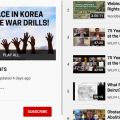
 This digital-only issue is packed with articles on themes important to the WILPF community including a report from Vicky Elson from the Disarm/End Wars Committee, a new feminist foreign policy by Val Maghadam, an in-depth look at the struggle in Colombia by Leni Villagomez Reeves, the misery brought about by the separation wall in Israel/Palestine by Odile Hugonot Haber, and many other articles that provide important insights about progressive movements.
This digital-only issue is packed with articles on themes important to the WILPF community including a report from Vicky Elson from the Disarm/End Wars Committee, a new feminist foreign policy by Val Maghadam, an in-depth look at the struggle in Colombia by Leni Villagomez Reeves, the misery brought about by the separation wall in Israel/Palestine by Odile Hugonot Haber, and many other articles that provide important insights about progressive movements.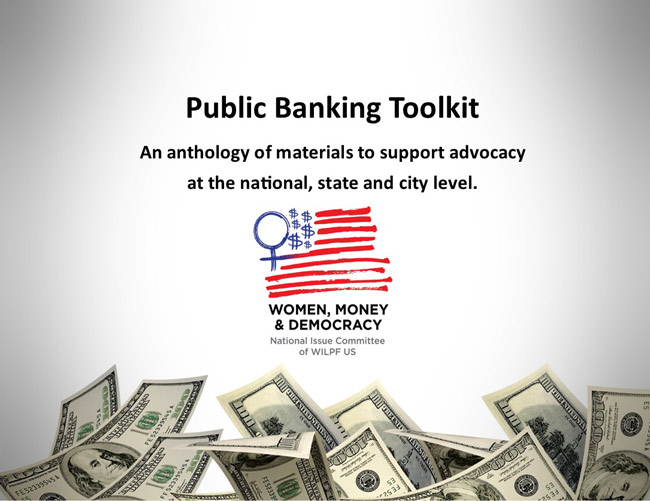
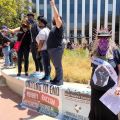
 Cuba’s role in the battle against COVID-19 is undeniable. Over 45 healthcare teams, operating under the name of the Henry Reeves Brigade, are working in over 40 countries providing healthcare to people being impacted by COVID-19. Within their own country, Cuba has 129 cases of COVID-19 per 100,000 while the US has a 50+ times higher rate at 6,649 cases per 100,000.
Cuba’s role in the battle against COVID-19 is undeniable. Over 45 healthcare teams, operating under the name of the Henry Reeves Brigade, are working in over 40 countries providing healthcare to people being impacted by COVID-19. Within their own country, Cuba has 129 cases of COVID-19 per 100,000 while the US has a 50+ times higher rate at 6,649 cases per 100,000. After a hiatus of several months, the longtime Advancing Human Rights (AHR) Issue Committee is now in preparation for renewal. Are you interested in one or more human rights issues? Help to reestablish the AHR Committee, with subcommittees, at the March 4 AHR Committee meeting.
After a hiatus of several months, the longtime Advancing Human Rights (AHR) Issue Committee is now in preparation for renewal. Are you interested in one or more human rights issues? Help to reestablish the AHR Committee, with subcommittees, at the March 4 AHR Committee meeting.